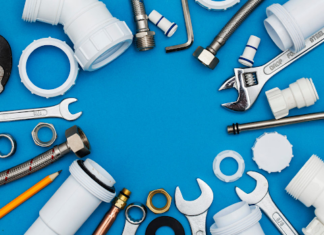If you don’t get enough vegetables your body can be damaged in several ways. Incorporating vegetables and fruits into your diet can improve your health in the long run.
There is no doubt that people with a good regular intake of fruits and vegetables live a healthier life. In today’s world, when the fast-food industry is reaching new heights, vegetables are often overlooked in our diets.
Vegetables may not be the tastiest option in your diet but they’re definitely the healthiest. The human body is incapable of producing vitamins or they are produced in very little amount. The body requires fat-soluble vitamins (vitamins A, D, E and K) and water-soluble vitamins (vitamins B and C) to function effectively. Most of these vitamins and minerals are found in vegetables, making them a rich source of nutrients. Therefore, eating fruits and vegetables regularly is essential to keep your body healthy and fit.
Adults are recommended to consume 2-3 cups of vegetables per day. However, a new study released in the CDC’s Morbidity and Mortality Weekly Report (MMWR), shows that only 1 in 10 adults eat the recommended amount of vegetables.
Effects of not eating vegetables
The phytonutrients found in vegetables protect us from various illnesses, even leading causes of death. They’re known for having an anti-cancer property that fights cancer-causing substances.
A shortage of these beneficial nutrients can lead to serious health issues in our bodies. Here’s what happens to your body if you don’t get enough vegetables:
Digestive Problems
Vegetables are high in fiber and water content. A lack of fiber in your diet can make you prone to several digestive problems including, constipation, diverticulosis and hemorrhoids. It can also result in bloating and dehydration, both of which contribute to fatigue and exhaustion. If you do have hemorrhoids, no matter what caused them, use Epsom salt for hemorrhoids. It’s like a bath salt but infused with essential oils and a special formula that calms the skin.
A good consumption of vegetables can help you feel more energized and eliminate waste from your body quickly.
Weight Management Issues
Vegetables are naturally low in fat and calories. Due to their high fiber content, they can keep you full for a longer time, whereas high-processed food makes you take in more calories.
By replacing high-calorie food with vegetables, you can increase your nutritional intake while reducing your calorie intake. If you’re having trouble losing or maintaining weight, try adding some non-starchy vegetables to your plate.
Dull Skin
Vegetables contain antioxidants and vitamins that help to keep your skin hydrated and healthy. They prevent your skin from looking dull, old and wrinkly.
Adding more vegetables to your diet can be your secret to glowing, youthful skin and reduced fine lines.
High Risk of Serious Illnesses
If you don’t eat enough vegetables then you’re putting your body at great risk. A diet that is low in fruits and vegetables is linked with an increased risk of diabetes and blood pressure. Your preference for high-fat and unhealthy foods over veggies can contribute to the development of heart diseases and stroke.
Research has proven that vegetables play a critical part in a cancer-prevention diet. As they’re rich in antioxidants, vegetables stimulate our immune system and protect our cells against cancer. Different vegetables can save you from a variety of cancers such as lung, mouth, and esophageal cancer.
Depression
The food we eat not only impacts our physical health but also our mental health. Vitamins protect us from brain and cell damage. So, people who consume more fruits and vegetables are less likely to be depressed.
Studies have also shown a connection between obesity and depression. A nutritious diet may not be the final treatment for depression but it can certainly help us feel better.
How to add veggies to your diet?
Vegetables aren’t everybody’s favorite food and if you’re one of those people then adjusting to these dietary changes will take some time. But the benefits are worth the effort!
Start by replacing fast-food and high-calorie food with fruits and vegetables. Lindsey Desoto, RDN, and her team compiled a list of necessary fruits and vegetables in her article if you don’t know where to start. Begin your day with a smoothie or juice and a veggie-filled dish. You can have a healthy salad for lunch or simply add some fruits to your salad. You can gradually increase your intake as you transition to a healthier lifestyle.
Conclusion
Increasing your vegetable consumption can help you in the long term. Everything might seem fine right now but an unhealthy diet can show its negative consequences at any time. There is some helpful information borrowed from HealthCanal that can help you with changes in your diet.
Some changes may be difficult in the beginning but your body will be thankful to you for them in the future.
It’s never too late to start prioritizing your health and taking care of yourself. Take the first step today!








